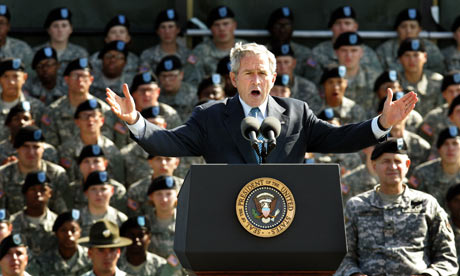David L. Chaplin II
Impunity Watch, Asia
PHON PENH, Cambodia – Thai and Cambodian troops continue to fight over a disputed area surrounding a 900-year-old Hindu temple.

The International Court of Justice awarded it to Cambodia in 1962 but the ruling did not determine the ownership of the scrub next to the ruins, leaving considerable scope for disagreement
On Friday, there was intense two-hour fighting between the neighboring forces, which left soldiers and a villager killed. On Saturday, troops fought with rocket-propelled grenades and guns, prompting residents to flee the area.
Shelling and machine gunfire echoed around the contested area on Monday around the ancient Preah Vihear temple claimed by both Southeast Asian neighbors, witnesses said.
Although sporadic clashes in the area are not unusual, it is rare for the two sides to fight over consecutive days. A call for “maximum restraint” to cease the hostilities was announced by Ban Ki-moon, the UN secretary-general.
At least eight people were killed in four days of cross-border violence, which forced thousands of families to flee on both sides of the frontier.
This has been considered the most deadly clash since Preah Vihear was granted UN World Heritage status in July 2008, a move that sparked sporadic skirmishes between the neighbors.
The temple was damaged on Sunday by Thai artillery fire, according to Cambodia, which said one wing of the building had “collapsed” as a result.
Thai officials, however, dismissed Cambodia’s account as propaganda. The true extent of damage is unknown.
With Prime Minister Hun Sen accusing Thailand of “repeated acts of aggression”, the country urged the UN Security Council to intervene in the fighting.
Thailand played down the reports of fresh fighting, with a military source near the border describing the incident as a “misunderstanding”, involving only small arms fire.
On Sunday, Wayne Hay, an Al Jazeera correspondent at the Thai-Cambodia border, reported seeing artillery fire streaming across the night sky, as well as ambulances heading towards the disputed area.
Government spokesman Panitan Wattanayagorn says occasional skirmishes were due to the unsecured nature of the border. He says it demonstrates a need to step up efforts under a memorandum of understanding aimed at resolving the territorial conflict peacefully.
“This is why we urge Cambodia to work with us more rapidly under the MOU to negotiate the clear demarcations so we can secure the borders much more effectively,” he said.
Hundreds of Thai nationalists with the People’s Alliance for Democracy, known as the Yellow Shirts, have been protesting near government offices for two weeks demanding they get tough with Cambodia.
Panthep Pourpongphan is a spokesman for the PAD, said “[t]his fighting, is kind of evidence, is quite clear evidence that this kind of MOU has so many problems that we need to stop it and [start] new negotiations with a new MOU,” Pourpongphan stated.
Diplomatic efforts to resolve a border dispute between Thailand and Cambodia gained momentum on Wednesday, with the two neighbors set to address the UN Security Council next week.
Thailand also raised the possibility of the first face-to-face talks between the two countries’ foreign ministers.
“This war will be resolved through the mechanism of the United Nations,” Hun Sen said in a speech in the Cambodian capital.
For more information, please see:
Al Jazeera –Thai-Cambodia clashes continue – 7 February 2011
Voice of America – Thailand, Cambodia Border Fighting Breaks Out Amid Tensions – 4 February 2011
Channel News Asia – Cambodia, Thailand to face UN over border dispute – 9 February

